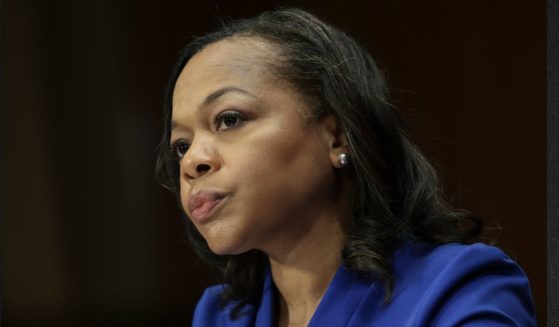Judge Blocks Ban on Abortion, Then People Realize Who He Really Is
A judge who blocked an Ohio law which bans abortions that took place because of positive Down syndrome tests is the former director and president of the Cincinnati branch of Planned Parenthood.
According to the Cleveland Plain Dealer, U.S. District Court Judge Timothy Black issued the injunction against Ohio House Bill 214 on Wednesday, temporarily blocking the law which had been signed by Republican Gov. John Kasich.
The bill prohibits terminating a pregnancy after testing shows that the unborn child may have Down syndrome.
Doctors who break the law would be guilty of a fourth-degree felony and could spend a year and a half in prison, in addition to a possible $5,000 fine.
However, in his decision, Judge Black cited established cases in which it was said “a State may not prohibit any woman from making the ultimate decision to terminate her pregnancy before viability.”
“Here, Ohio’s new law wrongfully does just that: it violates the right to privacy of every woman in Ohio and is unconstitutional on its face.”
Interestingly, one paragraph earlier, Judge Black acknowledges the special case that H.B. 214 represents: namely, that it “criminalizes performing an abortion if the person performing the abortion knows that one reason, in whole or in part, for the woman’s decision to terminate her pregnancy is a fetal indication of Down syndrome.”
Any legal examination of whether this would be fundamentally different than Roe v. Wade or Planned Parenthood v. Casey — the two cases which Black cited as the established and operative cases — went more or less unaddressed.
This would be an interesting legal debate, one way or another — in the hands of another judge. Unfortunately, as it turns out, Black’s history made his decision to hear the challenge to H.B. 214 completely inappropriate.
On Thursday, The Daily Caller noted that Black “worked as the director of Cincinnati’s Planned Parenthood Association from 1986 to 1989, and also served as its president in 1988.”
This was hardly a secret. Heck, it was on his judicial nomination questionnaire. What was curious is that Black had previously made the decision to recuse himself from an abortion case regarding Planned Parenthood before. In 2014, U.S. District Court Judge Michael Barrett took over for Black after Black recused himself in a case where the abortion giant was suing the Ohio Department of Health.
In this case, Planned Parenthood was one of the groups challenging the law and part of Black’s decision was based in part on a piece of case law that involved his former employer.
Just as it was in 2014, Black’s presence on the bench in this case represented a clear conflict of interest. Unlike in 2014, he decided not to recuse himself.
One does not wish to cast aspersions on Black’s motives. However, one also feels compelled to point out that the 2014 case involved something relatively minor; it had to do with an Ohio law which would have prevented abortion providers from having partnerships with public hospitals. For Planned Parenthood, I’m sure it was something worth going to court over, but nothing earth-shattering. H.B. 214, on the other hand, would be a fairly monumental precedent in terms of the defense of life — one that, if upheld by the courts, could see emulation from other state legislatures.
In other words, given this small sample size of two instances, Black’s concern for conflicts of interest seem inversely proportional to the importance of the case.
I will not pretend to be nonpartisan here: I wholeheartedly support H.B. 214 and Ohio’s defense of the unborn. This said, I will concede there are legal arguments to be made on both sides, given America’s legal history regarding abortion restriction. If this were a decision made by an unbiased judge who did not have any conflicts of interest, I may grouse and grumble about the abuse of the Fourteenth Amendment and activist judges, but there would be no outrage.
In this case, though, the fact that Justice Black decided to sit in on this case in spite of his history is beyond appalling. And it’s not just me who’s saying that. Justice Black said it four years ago when he recused himself from the public hospitals case. If only he would have listened to himself again.
Truth and Accuracy
We are committed to truth and accuracy in all of our journalism. Read our editorial standards.












